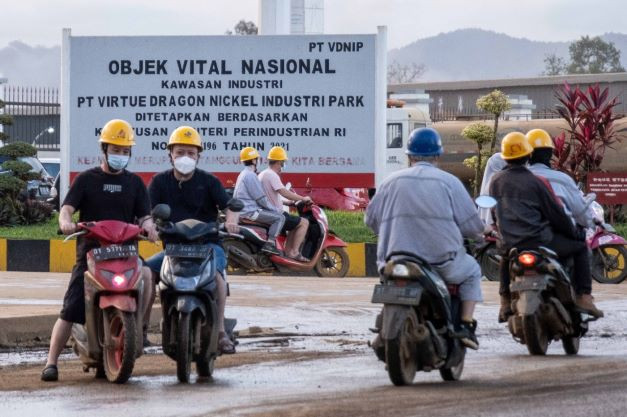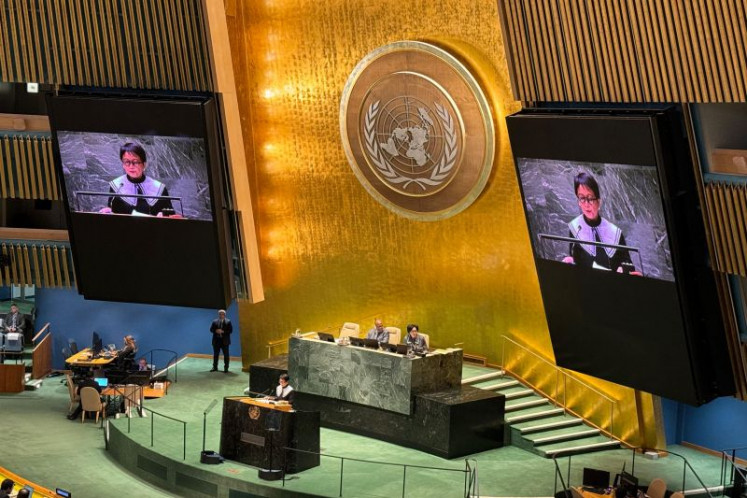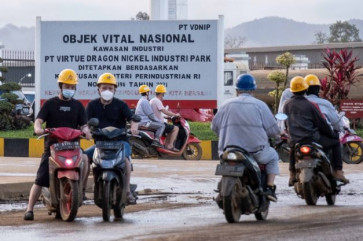Mineral export ban: A revival of Prebisch-Singer and Sukarno idea?
The less-developed countries' lack of savings results from their low level of GDP, while their lack of forex reserves is due to their weaknesses in international trade.
Change Size
 Nickel tussle: Employees ride motorcycles outside the Virtue Dragon Nickel Industry nickel smelting facility in Konawe, Southeast Sulawesi, on Sept. 21, 2022. The government has banned exports of nickel ore to support its downstreaming policy. (AFP/Andry Denisah)
Nickel tussle: Employees ride motorcycles outside the Virtue Dragon Nickel Industry nickel smelting facility in Konawe, Southeast Sulawesi, on Sept. 21, 2022. The government has banned exports of nickel ore to support its downstreaming policy. (AFP/Andry Denisah)
M
any had criticized the unbalanced results of the old international-trade system. One of the criticisms in the past came from Raul Prebisch in 1950, supported by Hans Singer on the same issue.
Based on the export statistics of the United Kingdom, Prebisch criticized the secular tendency of the terms of trade, moving against the primary products in favor of manufactured and capital goods. Such a trend entailed a necessity to export a large volume of primary products in order to import a certain amount of manufactured goods, especially capital goods.
It is a necessity for developing countries to import foreign capital goods to industrialize their countries. Alas, the development of international trade is handicapping those less-developed countries, making it difficult to catch up with the advanced countries in terms of financing the process.
If the present less-developed countries advance, there would be a higher volume of international trade, raising the export and import volume between countries in the world. But unfortunately, it seems that the present advanced countries are anxious to keep the less-developed countries in their status of underdevelopment.
This is a kind of new colonialism, as the late founding president Sukarno stated in the Bandung Asian-African Conference in 1955.
Prebisch and Singer maintain that the achievement of technological progress in developed countries does not percolate to the less-developed countries. Technology is a means of transforming an economy into an industrialized country, independent of the natural resources it inherits or endows.
Advanced technologies are contained in the latest capital goods, requiring foreign-exchange financing, potentially obtained from international trade. Unfortunately, again, it seems that specialization has been interpreted unfavorably, where the less-developed countries should specialize in raw-material production, while the developed countries specialize in manufactured goods or advanced-technology activities.

















